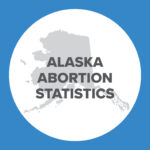Connecticut State Medical Society’s “Engaged Neutrality” on Physician-Assisted Suicide Concerns Physicians
Update: HB 5898, the assisted suicide bill, failed to receive enough support to be voted out of committee. CT News Junkie reports: “…Its chief proponent threw in the towel Monday, not allowing the bill to come up for vote in front of the Public Health Committee. ‘We just didn’t have the votes,’ Rep. Jonathan Steinberg, D-Westport, co-chair of the committee said. He said it also won’t be an issue next year since the membership of the committee won’t change.”
The Public Health Committee of the Connecticut General Assembly may soon vote on HB 5898, a bill to legalize physician-assisted suicide. This past February, the Connecticut State Medical Society (CSMS) abandoned its long-held stance of opposition to physician-assisted suicide for a position they term “engaged neutrality.” However, some physicians who treat patients at the end of life, and others, have expressed well-founded concerns about how a policy that is anything short of clear opposition would affect their practice.
Last week, hospice physician Dr. Joseph Andrews, Jr. announced his resignation from the Connecticut State Medical Society. Dr. Andrews cited the Hippocratic Oath he took 51 years ago and argued that there is “no effective or practical way to grant a ‘right’” to a small subset of individuals choosing death without calls for this door to open wider as a general right for all.
Dr. Andrews predicts that the legalization and normalization of assisted suicide as a medical practice would corrode his doctor-patient relationship:
“Once the door is opened here, it will open wider and wider. This explains the extraordinary fear and anxiety among people with progressive, chronic, non-fatal illnesses. They wisely fear the creeping growth of assisted dying and are acutely aware that politicians and their physician enablers will start ‘quality of life’ discussions which may result in curtailed access to ‘futile care.’”
He states further:
“Disabled people can judge their own quality of life, and they remind us that in a good society the weak are safe and the strong are just. Disabilities concentrate the mind wonderfully: behind the ‘quality of life’ smokescreen they see shadows of the Nuremberg laws and the ‘cleansing’ from society of ‘life unworthy of life.’”
Speaking from experience, other physicians in states that have passed assisted suicide laws have confirmed that some of their seriously ill patients have shown greater distrust and even fear of doctors.
Lastly, Dr. Andrews points to Canada, where the law tramples physicians’ consciences, requiring objecting doctors to obtain the services of a colleague who will assist a patient’s suicide, or else face sanctions.
It is tragic and alarming, but hardly unpredictable, that as Connecticut once again considers legalizing assisted suicide and its state medical society sinks into neutrality, physicians like Dr. Andrews believe the only ethical and principled way forward is to drop out of their organizations – potentially even the medical profession – rather than comply.






















